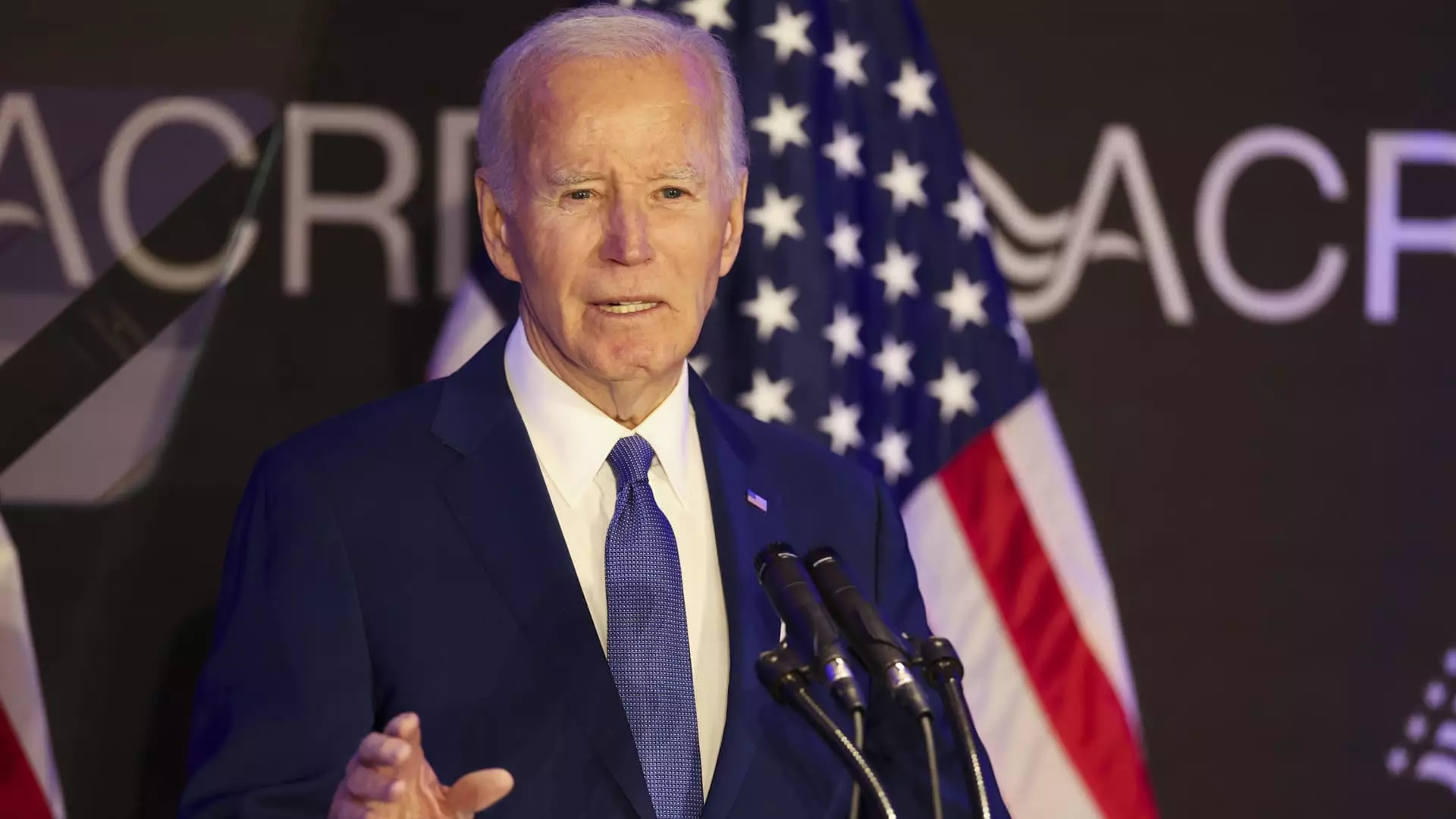The recent news of President Joe Biden’s prostate cancer diagnosis sheds light not just on his personal health struggles but on the broader implications of his leadership amidst challenges. Diagnosed with an aggressive form of cancer that has metastasized to his bones, Biden’s situation reveals the frailty that often accompanies political power. The agonizing reality is that for politicians, the burdens of service often mask personal predicaments; the political stage becomes a backdrop where human vulnerability is rarely acknowledged.
Biden’s cancer journey, marked by an unsettling Gleason score of 9, reflects a severe condition that typically signifies an uphill battle. It’s a stark reminder that behind the podium, political rhetoric, and strong promises, lies a very human experience—one filled with uncertainty and fragility. However, the silver lining here is that the cancer’s hormone-sensitive nature opens avenues for potential treatment, allowing for a glimmer of hope amid the shadows of despair.
Health as a Political Weapon
In a political arena where perception often overshadows reality, Biden’s health has become a focal point. Detractors frequently seize upon concerns regarding his age and fitness for office, weaponizing any signs of vulnerability to question his presidency. This dilemma underlines a disturbing trend—a simultaneous societal demand for strong, unwavering leaders while being quick to exploit their weaknesses. Biden’s recent health struggles not only fuel political discourse but also raise profound ethical questions about the treatment of leaders and their perceived autonomy.
Moreover, the public reaction to his diagnosis has been largely supportive, with tributes pouring in even from former adversaries like Donald Trump. Such gestures highlight an essential truth: humanity often transcends the political divide. Yet this compassion should serve as a reminder that beneath partisan squabbles, we are all susceptible to the frailties of life, even those at the zenith of power.
The Burden of Legacy
Biden’s legacy is now intertwined with health struggles that reflect a long-standing commitment to confronting cancer. His ambitious “cancer moonshot” initiative aims to cut cancer mortality rates in half over the next quarter-century, tethering the personal to the universal. This blend of personal anguish and public policy underscores the undeniable connections—how personal tragedies can give rise to societal movements. It begs the question: can Biden channel his fight against cancer into a renewed vigor for his leadership, thereby inspiring a nation that has also faced devastating losses due to this disease?
The sense of urgency surrounding his health is palpable, particularly when one considers Biden’s experience as a father navigating the tragic loss of his son, Beau, to brain cancer. This narrative gives weight to his initiatives but also casts a shadow over his political aspirations as he grapples with physical limitations. Voters are left pondering whether a man battling such a formidable adversary can lead a nation effectively.
A Visionary’s Grit
Ultimately, President Biden’s diagnosis reveals the relentless struggles entwined with visionary leadership. Age-old traditions of dismissing vulnerability should make way for a more empathetic political discourse, recognizing that strength often resides in acknowledging weakness. Biden’s fight against cancer could transform from a personal battle into a potent symbol of resilience for millions affected by the disease.
Despite the uncertainties ahead, Biden’s resolve to confront cancer could well become a testament to his character and leadership. In an age where division reigns supreme, perhaps this battle can galvanize not just support for him but a collective movement towards cancer awareness and treatment advocacy. His journey, fraught with challenges, reminds us all that the fight against cancer—empowered by personal stories and unwavering commitment—can reshape narratives and inspire hope. The path forward remains unclear, but the battle against this ailment might just become a powerful motif that transcends mere political survival.



Leave a Reply